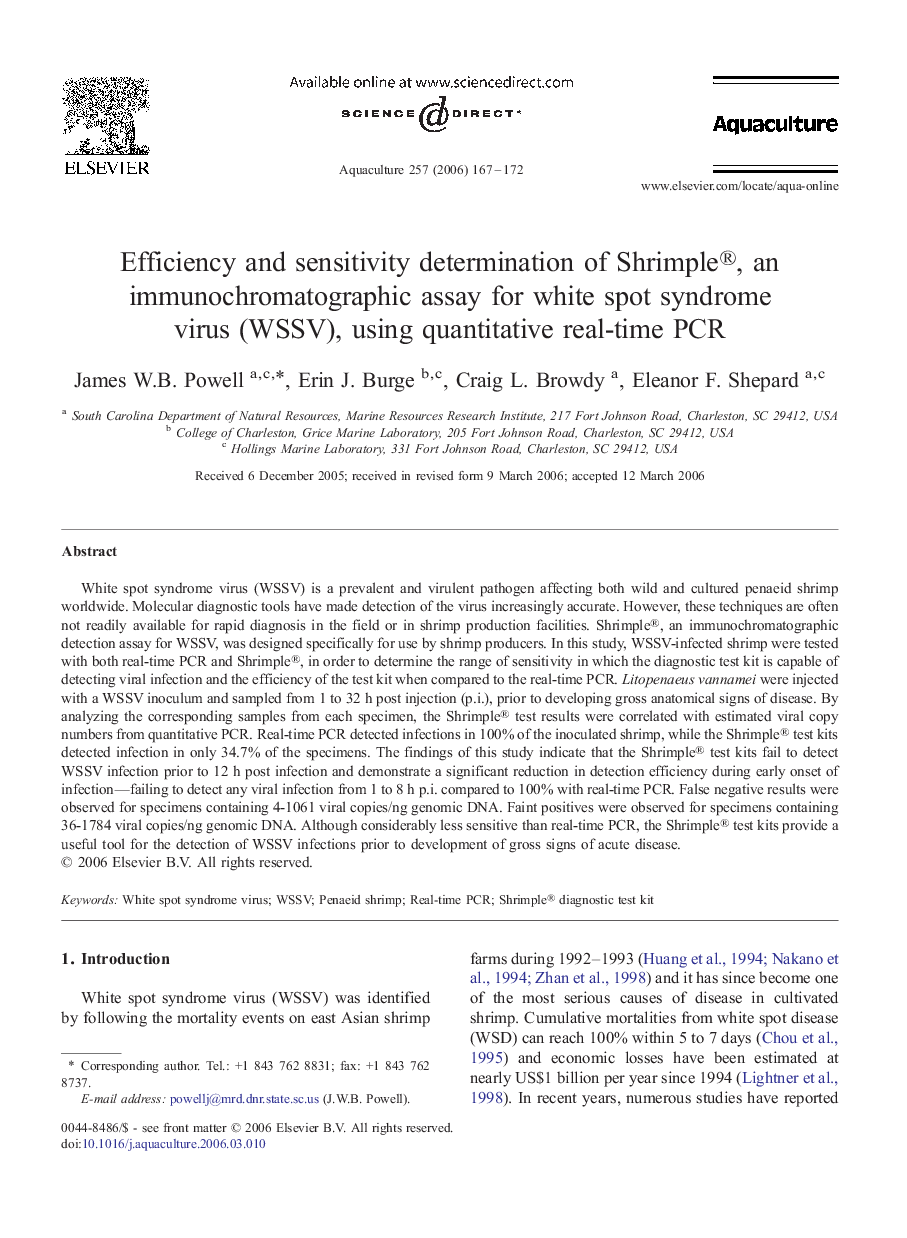| Article ID | Journal | Published Year | Pages | File Type |
|---|---|---|---|---|
| 8496784 | Aquaculture | 2006 | 6 Pages |
Abstract
White spot syndrome virus (WSSV) is a prevalent and virulent pathogen affecting both wild and cultured penaeid shrimp worldwide. Molecular diagnostic tools have made detection of the virus increasingly accurate. However, these techniques are often not readily available for rapid diagnosis in the field or in shrimp production facilities. Shrimple®, an immunochromatographic detection assay for WSSV, was designed specifically for use by shrimp producers. In this study, WSSV-infected shrimp were tested with both real-time PCR and Shrimple®, in order to determine the range of sensitivity in which the diagnostic test kit is capable of detecting viral infection and the efficiency of the test kit when compared to the real-time PCR. Litopenaeus vannamei were injected with a WSSV inoculum and sampled from 1 to 32Â h post injection (p.i.), prior to developing gross anatomical signs of disease. By analyzing the corresponding samples from each specimen, the Shrimple® test results were correlated with estimated viral copy numbers from quantitative PCR. Real-time PCR detected infections in 100% of the inoculated shrimp, while the Shrimple® test kits detected infection in only 34.7% of the specimens. The findings of this study indicate that the Shrimple® test kits fail to detect WSSV infection prior to 12Â h post infection and demonstrate a significant reduction in detection efficiency during early onset of infection-failing to detect any viral infection from 1 to 8Â h p.i. compared to 100% with real-time PCR. False negative results were observed for specimens containing 4-1061 viral copies/ng genomic DNA. Faint positives were observed for specimens containing 36-1784 viral copies/ng genomic DNA. Although considerably less sensitive than real-time PCR, the Shrimple® test kits provide a useful tool for the detection of WSSV infections prior to development of gross signs of acute disease.
Related Topics
Life Sciences
Agricultural and Biological Sciences
Aquatic Science
Authors
James W.B. Powell, Erin J. Burge, Craig L. Browdy, Eleanor F. Shepard,
